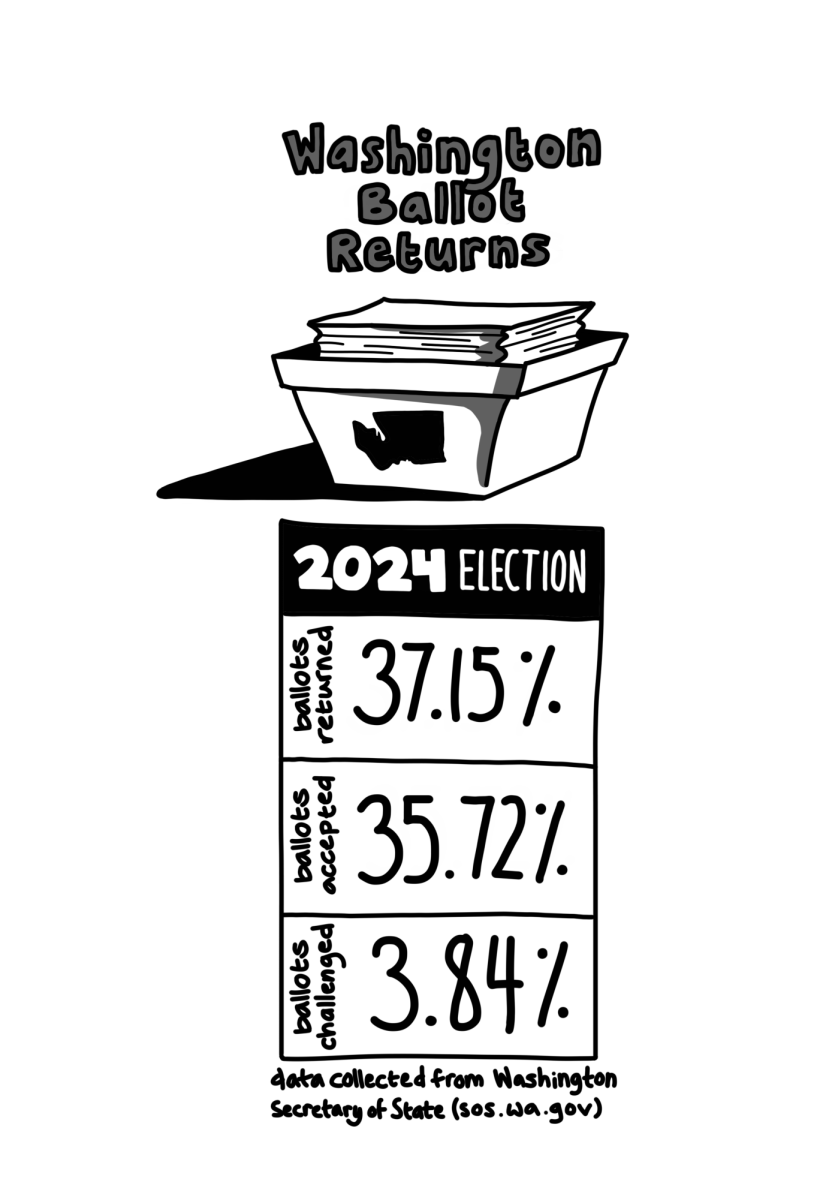Parrot Conservation in Fiji and Mill Creek Fish Passage Improvement are now classes at Whitman, through Environmental Studies 220 Environmental Internship.
“The environmental internship consists of getting involved with something environmental whether it’s in Walla Walla or your town. It’s to get a feel for what’s out there.” Said Senior Environmental Studies-Geology Major Andrea Seymour.
“The internship has been an integral part of the environmental studies program for as long as I’ve been here.” Said the Academic Assistant for Environmental Studies, Amy Molitor who supervises environmental interns.
“The purpose is to give students firsthand experience with a non-profit environmental organization or environmentally focused government agency” said Molitor. “More recently we’ve had students work with people or companies that are working towards sustainability, such as an organic farm.”
The one credit course is required for all Environmental Studies majors. It is offered in both the fall and spring, but recently some students, such as Seymour, have completed their internship over the summer.
“Summer option has added greater richness to the experience. Students are able to get into the nuts and bolts of an organization without having to balance the internship with classes and other activities.” said Molitor.
“Though Walla Walla has a significant number of environmental agencies and non-profit organizations willing to sponsor an Environmental Studies intern, summer internships allow students to have access to a wider variety of opportunities. Summer internships have taken students to Washington, DC, Denver, CO and as far away as the Fiji Islands.” said Molitor.
Senior Environmental Studies-Humanities major Julia Lakes sees Walla Walla as the center of her two environmental studies internships.
“Our expertise is often not shared with this community. We have so many smart students and valuable resources. We have a duty to share this knowledge with Walla Walla,” said Lakes.
Students work closely with Molitor to find a summer internship that is right for them.
“I can provide suggestions of where to look for an internship” said Molitor, “but the process of obtaining an internship is part of the learning process. Students have to find the internship and submit a resume and cover letter.”
During the year the process is less rigorous. Molitor makes a list of available internships and a list of students and then matches them based on the student’s preference and the organization’s needs. Students can also propose their own internship. The program is meant for students to have the freedom to take ownership in their internship.
The credit requires four hours a week, but according to Molitor students often go above and beyond. The program also provides structure to keep students accountable and make sure the internship is running smoothly. Students keep a log of their activities. They also do a report half way through and a final report.
Organizations and students sign a contract beforehand stating the student’s duties. “Students develop goals and objectives with the organization to try and minimize the clerical component.
“We want students to really get their hands dirty in terms of environmental work.” said Molitor.
“I think it’s a really important program and one that is easily over looked as not being [an] integral part of the environmental studies major. Environmentalism inherently involves community work. The internship gives students something concrete.” said Lakes.







